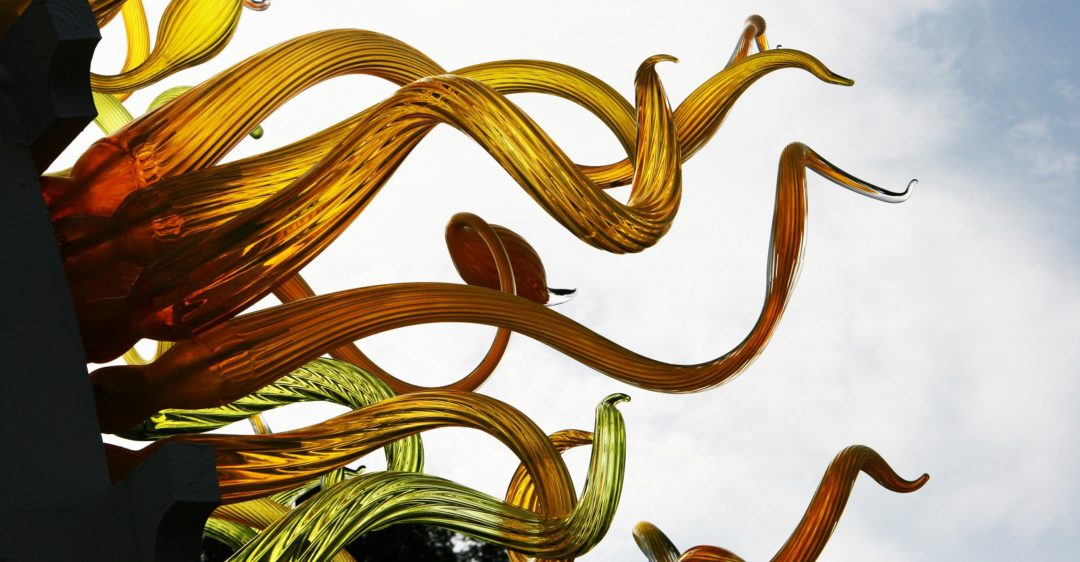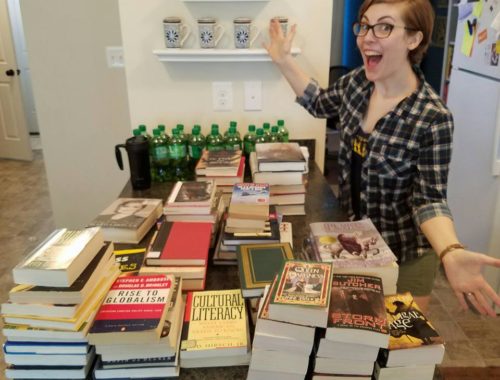A few months after I started blogging, a friend of mine came to visit. As we drove back to my house from the airport, one of the things we discussed was my recent writing habit and she expressed some uneasiness about its content and tone. She cautioned me against being too angry, too bitter, too critical, too ungracious. It was a criticism I was already growing inured to since I got a comment arguing essentially the same thing every other day, it felt like. But, this was my friend, so I tried to keep the defensiveness to a minimum. I told her I understood, but my anger was healthy and the criticisms I was making were necessary– especially because, often, those criticisms were not intended to be received well by who I was criticizing, but to validate those they had harmed.
At the end of the year, my father recognized a portion of an anonymous interview I’d given to the BBC about Michael and Debi Pearl’s books and their abusive teachings. He called me, understandably wounded and upset. “When are you going to stop?” he asked me, referring to my decision to air our dirty laundry on the internet. “Never!” I shouted, nearly screamed, at him. “Not as long as there is a single child still being abused the way I was!” It was the worst fight we ever had, and we didn’t speak for nearly a year (he has since demonstrated a real and lasting repentance, and I am very grateful and happy with my relationship with him now).
Sometime in the next year, I wrote in a Facebook comment somewhere about the way C-PTSD has irrevocably changed my life, changed my brain, changed everything; another trauma survivor told me how I was wrong, how the wounds eventually heal and the scars fade, and admonished me not to reject a path toward healing and wholeness. I was offended, and told her so. To me, it smacked of what I’d been told all my life: you can– and must– choose joy, bitterness is a poison that hurts only yourself, forgiveness is the only way to be happy … what she said felt like the secular wooey-woo version of the fundamentalist mandate to “let not the sun set upon your wrath.”
This summer has also been difficult for a lot of different reasons, and at one point both Handsome and one of my closest friends tried to reassure me that the things I was going through wouldn’t last forever, promising me they will eventually get better. But, again, it just sounded like one of my fundamentalist pastors encouraging his congregation to ignore their emotional interior because “this, too, shall pass.” Their reassurance, to me in that moment, was upsetting. It felt invalidating instead of helpful.
***
Last night I had a migraine, which means I needed to stay away from backlit screens so I decided to read Sense and Sensibility aloud in lieu of watching Elementary with my partner, and when I got to this passage, I laughed because I felt a twinge of oof, same:
The agony of grief which overpowered them at first, was voluntarily renewed, was sought for, was created again and again. They gave themselves up wholly to their sorrow, seeking increase of wretchedness in every reflection that could afford it, and resolved against ever admitting consolation in the future.
I have been mulling over this problem for almost a year now– have started and stopped half a dozen posts about it. It’s thorny, and tricky, and all I can do is hope what I’m trying to say here will be received in the same spirit I’m offering it. I shared the anecdotes above to illustrate what I’m examining is not something I’ve noticed solely “out there” in other people, but primarily in myself, as recently as last month.
When trauma survivors first exit fundamentalism/evangelicalism, one of the most crucial first steps we must take is leaning into our emotions– all our emotions, especially the “negative” ones that we were usually completely cut off from. After a lifetime spent in an authoritarian environment that controlled our emotional lives by telling us feeling anything besides joy is sinful, we need our anger and rage as much as we need air to breathe and food to eat. It’s necessary for our survival. There’s a reason why one of the adjectives in my Twitter bio is “bitter” and I’m never taking it out. “Bitter” is no longer an accusatory insult, but claimed and redeemed as a meaningful part of my recovery.
However, I have noticed a pattern in myself and my communities for a long time and am becoming increasingly troubled by it (important to note this isn’t limited to post-authoritarian-religion spaces, I’ve also experienced similar patterns in disability and mental health spaces, too). As we gather together online and in the meatspace, we can find an incredible amount of validation and support among other survivors. In an effort to make those spaces as safe and welcoming as possible, members are encouraged either explicitly by moderators and rules or implicitly by group norms to respect, and not dismiss, another’s sharing of their experience and pain. This is important, and makes it possible for people to see themselves reflected in other’s stories and understand, maybe for the first time, they’re not alone. I will never undercut the power this holds: for me, I’ve always expressed it as feeling the “scales fall away from my eyes,” that’s how transformative it was.
But, I am growing convinced that sometimes what starts as validation can become retraumatizing. I think it’s possible for the support and encouragement to finally acknowledge all the hurt and pain to become conflated with barring the illumination of a path toward equilibrium, integration, and healing. Obviously, I understand why this happens. When I hear “it gets better, here’s how” in the throws of my suffering and consequently reject it, I am operating from a similar place as Mrs. Dashwood and Marianne: “resolved against ever admitting consolation in the future.” Add a heaping side-dish of a lifetime of being guilted and shamed for my emotions, and “giving them up” in any way feels like ceding my abusers emotional manipulation and control. In the heat of the moment, I think it can genuinely be difficult to suss out the difference between my friend telling me I was being too critical of fundamentalist churches and my partner trying to reassure me.
Another aspect of this is what my therapist and I have termed the “trauma tentacle monster.” I went several years without processing any of my trauma, burying it as deep as I possibly could and almost vindictively squashing down any sign of it coming to the surface. Because of that, the trauma tentacle monster grew. It fed on those memories I kept in the dark and slowly creeped and oozed its way into every single part of my life until it was utterly impossible to escape it. Things that, at first, had absolutely nothing whatsoever to do with my trauma became connected to it, became a trigger. Once the connection was made, getting the tentacle cut off and unstuck took serious effort and time.
I’m not a licensed therapist so take this with the necessary grain of salt, but: I don’t think I’m alone. I don’t think I’m the only person in the world with a trauma tentacle monster living in my head, and I’ve seen signs of them lurking under the surface in friends, colleagues, acquaintances, and occasionally rearing their head. Sometimes those trauma tentacle monsters lash out at the people around it.
I am coming to believe that spaces built for trauma survivors can, completely unintentionally, feed the tentacle monster and allow it to grow. It’s possible for the monster to even thrive in those environments, for it to exploit the steady stream of validation and connections (as well as for harmful individuals in those communities to capitalize on the existence of all our hidden monsters, to weaponize them against each other).
What I’m not at all sure about is what to do about any of this. We need our communities. We need our safe havens. We need the validation, the support, the ability to bravely share our stories. I believe those things are essential … but we also need healing, and to know that healing is possible. The trauma tentacle monster can be fought, can be beaten.
Really … we all just need therapy. A lot of therapy.



